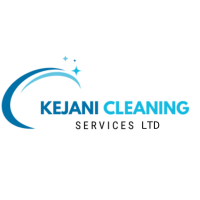Ensuring safe office cleaning practices is paramount in maintaining a healthy and productive work environment. Clean offices not only enhance the aesthetic appeal of a workplace but also play a crucial role in preventing the spread of illnesses and ensuring the overall well-being of employees. This comprehensive guide outlines the best practices for safe office cleaning to ensure a hygienic and safe workspace for everyone.
Importance of Safe Office Cleaning Practices
Office environments are breeding grounds for germs and bacteria due to the high volume of people and shared surfaces. Implementing safe cleaning practices is essential to:
- Reduce the Spread of Germs: Regular and thorough cleaning minimizes the risk of infections.
- Enhance Employee Productivity: A clean workspace boosts morale and productivity.
- Prolonged Office Equipment Lifespan: Proper cleaning methods extend the life of office furniture and equipment.
- Maintain Professional Appearance: A clean office creates a positive impression on clients and visitors.
Developing a Cleaning Plan
A well-structured cleaning plan is the foundation of effective office cleaning. Here’s how to create one:
Assessing Cleaning Needs
Conduct a thorough assessment of the office to identify areas that require regular cleaning. Pay special attention to high-traffic areas such as:
- Restrooms
- Breakrooms
- Conference Rooms
- Workstations
Creating a Cleaning Schedule
Develop a cleaning schedule that outlines daily, weekly, and monthly tasks. Assign responsibilities to ensure all areas are covered:
- Daily Tasks: Empty trash bins, disinfect high-touch surfaces, clean restrooms, and kitchen areas.
- Weekly Tasks: Vacuum carpets, dust surfaces, mop floors.
- Monthly Tasks: Deep clean carpets, sanitize office equipment, wash windows.
Choosing the Right Cleaning Products
Select cleaning products that are effective yet safe for both the office environment and employees. Consider the following:
- Eco-friendly Products: Reduce environmental impact and minimize exposure to harsh chemicals.
- Disinfectants: Use EPA-approved disinfectants to ensure effective germ elimination.
- Non-toxic Supplies: Protect the health of cleaning staff and office employees.
Implementing Safe Cleaning Techniques
Proper cleaning techniques are essential to ensure safety and effectiveness. Here are some key practices:
Surface Cleaning and Disinfection
- High-Touch Surfaces: Regularly disinfect doorknobs, light switches, keyboards, and phones.
- Desks and Workstations: Clean and disinfect desks, especially shared workspaces.
- Common Areas: Pay extra attention to breakrooms and conference rooms.
Carpet and Floor Cleaning
- Vacuuming: Regularly vacuum carpets to remove dust and allergens.
- Mopping: Use appropriate floor cleaners and mopping techniques for different floor types.
- Stain Removal: Address spills and stains promptly to prevent permanent damage.
Air Quality Maintenance
- Ventilation: Ensure proper ventilation to reduce indoor air pollutants.
- Air Filters: Regularly replace air filters in HVAC systems.
- Indoor Plants: Consider adding indoor plants to improve air quality naturally.
Training and Safety Measures for Cleaning Staff
Cleaning staff must be well-trained and equipped with the right tools to perform their duties safely and effectively.
Training Programs
- Proper Use of Cleaning Products: Educate staff on the correct usage of cleaning agents to avoid mishandling and potential hazards.
- Safe Cleaning Techniques: Teach best practices for cleaning various surfaces and areas.
- Emergency Procedures: Train staff on how to handle spills, accidents, and other emergencies.
Personal Protective Equipment (PPE)
- Gloves: Protect hands from harsh chemicals and contaminants.
- Masks: Prevent inhalation of harmful substances, especially during disinfecting.
- Eye Protection: Safeguard eyes from splashes and fumes.
Health and Safety Guidelines
- Hygiene Practices: Encourage regular handwashing and personal hygiene among cleaning staff.
- Safe Storage: Ensure cleaning products are stored safely, away from food and in clearly labeled containers.
- Risk Assessments: Regularly conduct risk assessments to identify and mitigate potential hazards.
Ensuring Compliance with Regulations
Adhering to health and safety regulations is crucial in maintaining a safe office environment.
OSHA Guidelines
Follow the Occupational Safety and Health Administration (OSHA) guidelines for workplace cleanliness and employee safety:
- Hazard Communication: Ensure that Safety Data Sheets (SDS) for all cleaning products are accessible.
- Training Requirements: Meet OSHA’s training standards for cleaning staff.
- Exposure Control: Implement measures to limit employee exposure to hazardous substances.
Environmental Regulations
Comply with local and federal environmental regulations by:
- Proper Disposal: Dispose of cleaning chemicals and waste responsibly.
- Sustainable Practices: Implement eco-friendly cleaning practices to reduce environmental impact.
Monitoring and Continuous Improvement
Regular monitoring and improvement of cleaning practices ensure ongoing safety and effectiveness.
Regular Inspections
Conduct regular inspections to assess the cleanliness of the office and the effectiveness of the cleaning plan. Address any issues promptly to maintain high standards.
Feedback Mechanism
Establish a feedback mechanism for employees to report concerns and suggest improvements. This promotes a collaborative approach to maintaining a clean office environment.
Updating Cleaning Protocols
Stay updated with the latest cleaning techniques and products. Regularly review and update cleaning protocols to incorporate new best practices and technologies.
Conclusion
Ensuring safe office cleaning practices is essential for the health and productivity of employees. By developing a comprehensive cleaning plan, implementing effective cleaning techniques, training cleaning staff, complying with regulations, and continuously improving practices, offices can maintain a clean and safe environment for everyone.

0 Comments